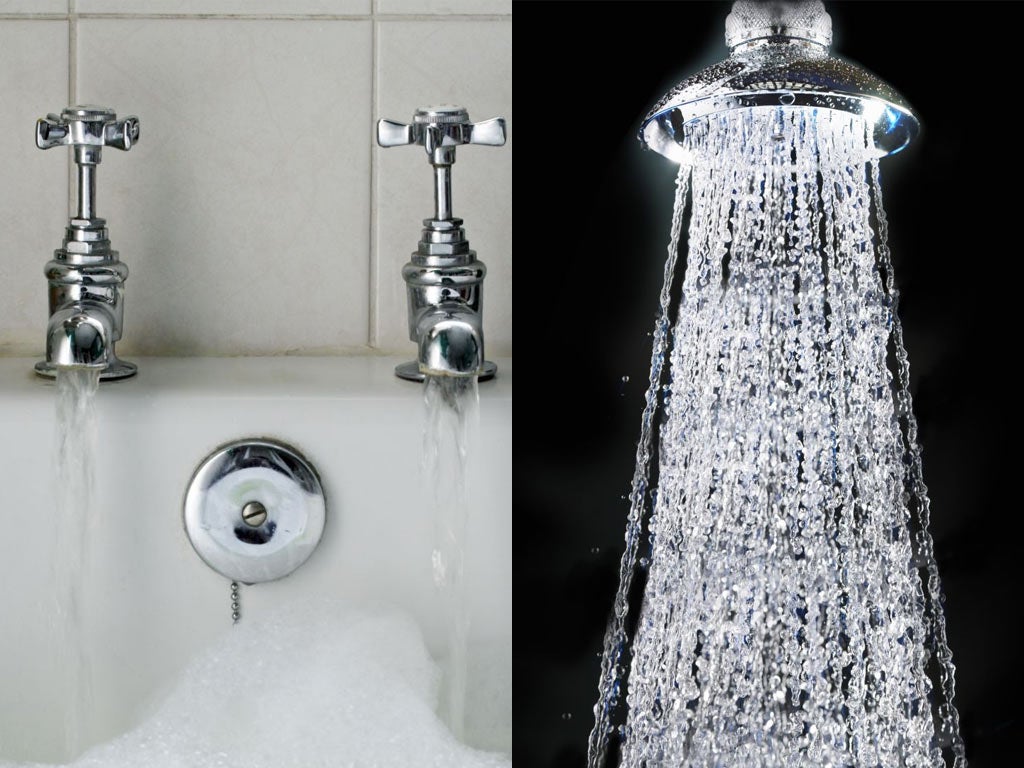Now baths are green option as eco-groups go cold on showers

It is common knowledge that a shower uses much less water than a bath, and choosing a quick rinse over an indulgent soak has long been a badge of honour for domestic eco-warriors. The only snag is, this isn't necessarily true.
Research into the habits of British families has found that some showers use nearly twice as much water as the average bath. While an average eight-minute shower uses about 62 litres of water, compared with 80 litres in the average bath, some power showers can use up to 136 litres of water in that time – comparable to 200,000 litres of hot water per year for a four-person family, at a cost of £918.
Unilever, which conducted the study of 2,600 showers in 100 households, said it was the first of its kind to accurately measure water usage. The findings threaten to debunk the "eco-myth" that a shower is always the greenest option.
"Showers are an increasingly large part of the mix in terms of the amount of water we use," said Jacob Tompkins, managing director of Waterwise, which campaigns for water efficiency. "The energy associated with heating water in the home is about 5 per cent of UK CO2 emissions and it's around a quarter of energy bills."
He added that while most showers still represent a more economical option than having a bath, some high-pressure power showers, which represent around 20 per cent of the market, did use more water.
The average person in the UK uses 150 litres of tap water per day, up by around 30 litres since the 1970s. With a growing population putting further pressure on water supplies, and one of the driest years on record leading to a winter drought in the south east of England, even the Government is beginning to pay attention to how long we spend in the shower.
"Saving water is everyone's responsibility and it is clear from this research that by spending less time in the shower we can not only help the environment but also save money," said a spokesman for the Department for Environment, Food and Rural Affairs.
Economical alternatives to inefficient, high-pressure power showers include aerated shower heads, which mix air with water to reduce usage by up to 60 per cent while still giving the required power, and optimised showers, which regulate the flow across the shower head.
"While we'd still recommend switching from baths to showers, we suggest not to switch to a massive shower with a pump on," Mr Tompkins said. "Also, if people can cut down on their shower time, that has an impact."
Join our commenting forum
Join thought-provoking conversations, follow other Independent readers and see their replies
Comments
Bookmark popover
Removed from bookmarks